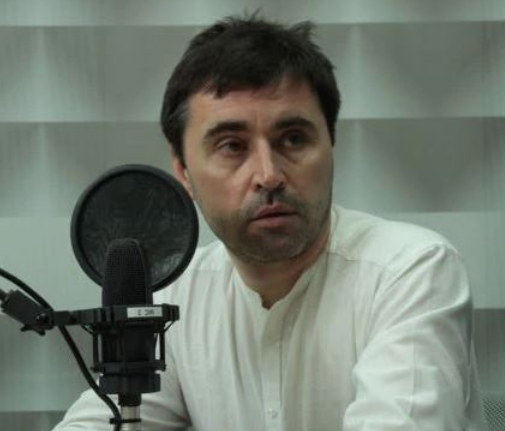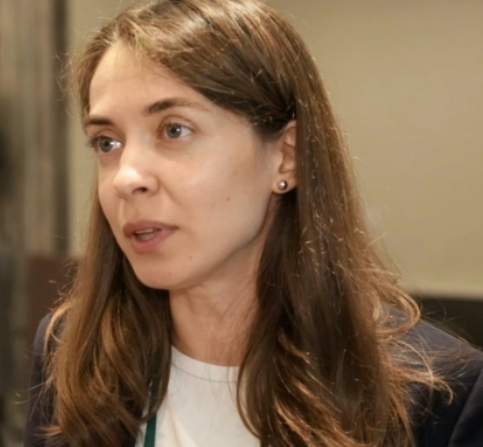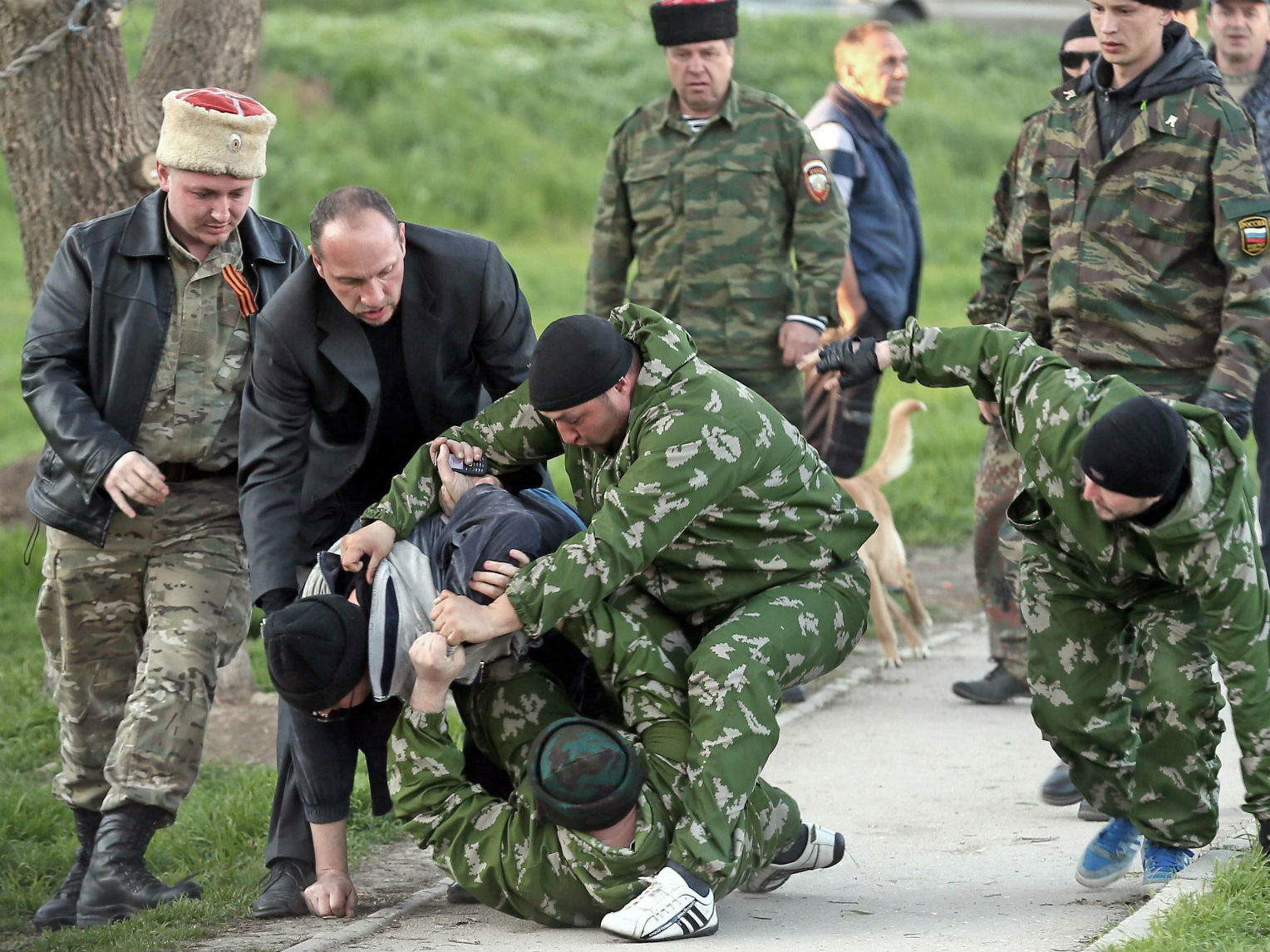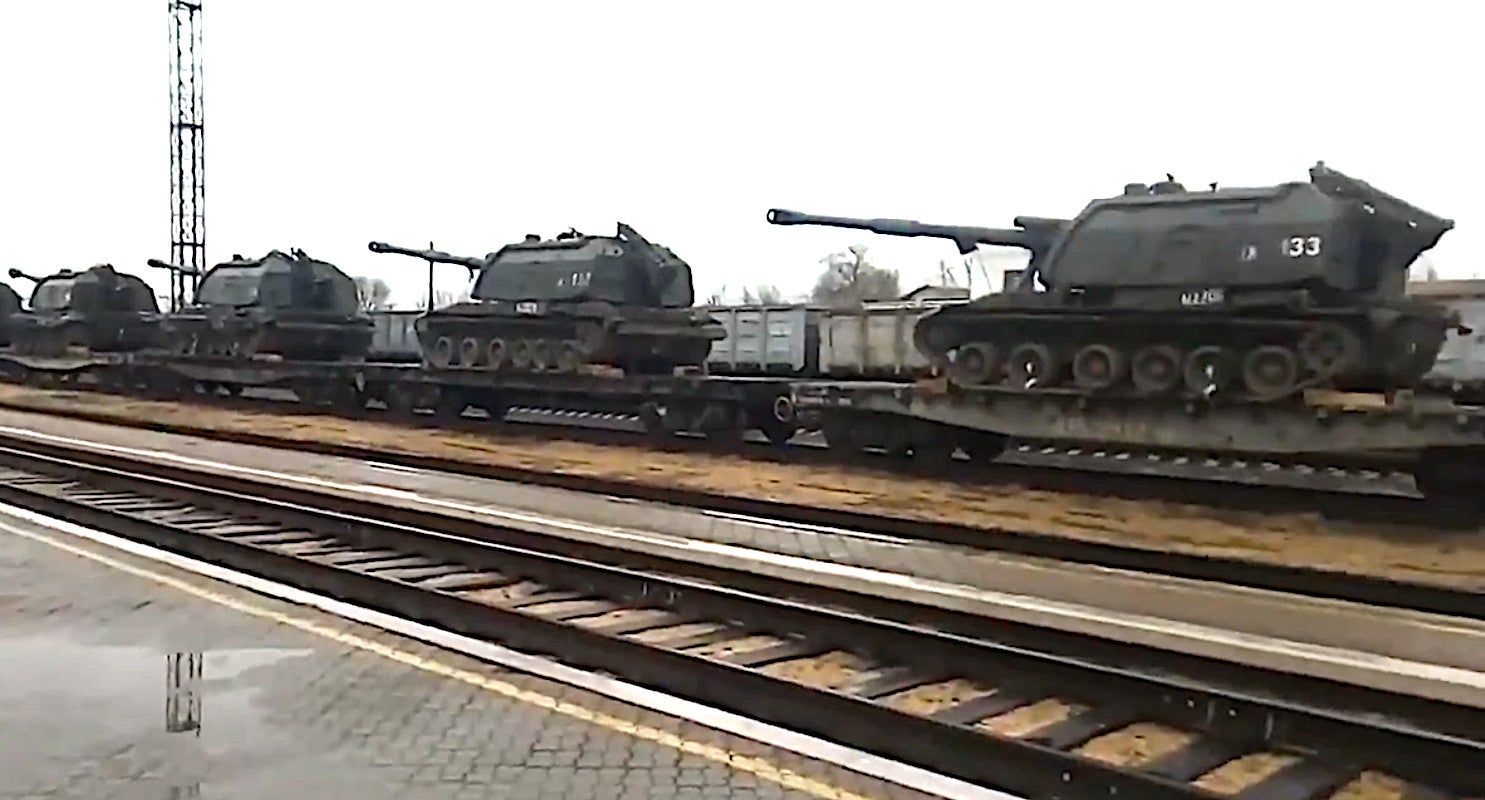On 14 January 2021, the European Court of Human Rights (ECtHR) ruled that Russia carries responsibility for the observance of human rights in the Ukrainian Crimea, because it basically controlled the peninsula from 27 February 2014, way before the sham referendum Russia used to justify its occupation. And although with this decision, the ECtHR has only established that it has jurisdiction to hear a case brought by Ukraine over Russia’s annexation of its Crimean Peninsula, it is already a judicial act that will have consequences for Russian politicians. Moreover, it unlocks a number of cases related to Russia's human rights violations in occupied Crimea that were "frozen" in the ECtHR, awaiting this date.
The decision of the European Court of Human Rights from 14 January 2021 is still an intermediate decision. Formally it declares complaints brought by Ukraine against Russia concerning a pattern of human rights violations in Crimea “partly admissible,” opening the way for court investigation of Russian crimes and a final decision.
However, unlike similar intermediate decisions of other international courts that already were made in 2019 and 2020, this decision became the first court decision that officially recognized that Russia held “effective control” over the Crimean Peninsula since 27 February 2014, thus establishing the date of the occupation.

Importantly, this is the date Ukraine proposes to mark the start of the occupation, before the so-called referendum in Crimea, and not 18 March, which Russia advocates. Thus, the court de-facto recognized that Russia took control over Crimea before any referendums or treaties that could provide legal basis for this. Therefore, the very “referendum” and treaty on “the unification of Crimea with Russia” have no legal power because were conducted under military pressure, and this is a very important conclusion from this court decision.
While not stating directly that Russia conducted an illegal occupation of Crimea, which is not the subject of the hearing in the Strasbourg court, this decision nonetheless provided an important conclusion for the further conviction of the illegal Russian occupation in the Hague.
It found:
“that the facts complained of by the Ukrainian Government did fall within the 'jurisdiction' of Russia on the basis of effective control that it exercised over Crimea as of that date [since 27 February 2014]. When coming to that decision it took into account in particular the size and strength of the increased Russian military presence in Crimea from January to March 2014, without the Ukrainian authorities’ consent or any evidence to prove that there was a threat to Russian troops stationed there under the relevant Bilateral Agreements between them, valid at the time. It also found the Ukrainian Government’s account coherent and consistent throughout the proceedings before it; they had provided detailed and specific information, backed up by sufficient evidence, to prove that the Russian troops had not been passive bystanders, but had been actively involved in the alleged events.”

Such a decision has other broad implications as well. It can unblock numerous other court cases of Ukrainian companies and other entities against Russia. As well, it can make Russia accountable for events that unraveled in Crimea not only after the so-called treaty of unification on 18 March 2014 but already at the time of the Russian military control over the peninsula in late February.
The decision, therefore, jeopardizes the entire Russian propaganda narrative, which tried to portray the Crimean occupation as protection of the Russian people who wanted this protection. Instead, the decision recognized that military occupation and Russian control came first and all that followed, including the “referendum,” was controlled and conducted by Russia.
"Recognizing that Moscow gained control of Crimea back in February gives [Ukrainian legal entities] the opportunity to complain to Strasbourg and unblock a number of cases that already exist in Strasbourg, but are frozen because they are waiting for a decision on Russia's legal responsibility for violations in Crimea between 27 February and 18 March 2014," Ivan Lishchyna, Deputy Minister of Justice of Ukraine and the government representative for the European Court of Human Rights explained.
He also emphasized that the central issue is that the European Court of Justice has upheld Ukraine's claim that Russia controlled Crimea already between 27 February and 18 March 2014.
“It is obvious that this decision will be used in the case of the International Court of Justice [in Hague]. This will be used very widely by Ukrainian diplomacy. Important, it is not a political statement, not a statement of politicians. This is a court decision. It is impossible to reconsider this decision ... It is no longer that Ukraine says one thing, Russia says another. Now it is enough to simply refer to this decision so that anyone understands why you believe that Crimea was occupied long before the so-called referendum.”
An important detail of the court decision is that world “referendum” is constantly written in quotation marks, setting a certain standard of further references to this event, explains Serhiy Sydorenko, a Ukrainian analyst in foreign affairs.
Another important fact is that the court recognized that it is Russia who bears full responsibility for human rights violations in Crimea since 27 February 2020 for it controlled the peninsula this day and later on.
The next and last step of the court is to prove that human rights violations happened in Crimea during the time considered (27 February 2014 -- 26 August 2015). Giving that Ukraine has many well-documented examples of such violations presented to the court, the final decision predictably should be positive for Ukraine.

Overall, there are at least five international courts where Ukraine has submitted its cases against Russia: The International Criminal Court located in Hague, The International Court of Justice also located in Hague, the European Court of Human Rights in Strasbourg, International Chamber of Commerce in Paris, and International Tribunal for the Law of the Sea in Hamburg. Several court hearings have recently progressed in favor of Ukraine. In particular, on 11 December 2020, the International Criminal Court finally agreed to open a case regarding war crimes in occupied Crimea and Donbas. Also, on 8 November 2019, the International Court of Justice issued a major ruling in Ukraine's case against the Russian Federation and agreed with Ukraine that the court can consider Ukraine’s application. This decision is promising, giving that Ukraine has collected 17,500 pages of evidence: Grad missile shellings and frequent bombings of residential neighborhoods, together with numerous killings of the opposition — all by Russian weapons — clearly demonstrate that Russia did finance terrorism in Donbas and is guilty of war crimes, such as killing civilians. The final decision of the International Court of Justice regarding these war crimes may well become the next Ukrainian victory. Russian propaganda outlets have tried to downplay the impact of the court decision or even describe it as a success of Russia, citing that the court declared Ukraine’s appeal only “partly admissible.” In fact, the court declared admissible 14 out of 17 presented by Ukraine violations of human rights in Crimea. Among them are: This is more than enough, to call the current decision a success. “This list is not yet a list of violations for which Russia is responsible. We now have a 'list of charges' on which a verdict will be handed down. We will see where Russia will be found guilty and where it will be acquitted... The court tries to avoid harsh statements and political assessments, to remain impartial and objective. But nothing prevents us from calling things by their name, and when the court speaks of 'effective control over the territory of the Crimean peninsula by the Russian Federation,' we can confidently speak of occupation,” Serhiy Zayets, Ukrainian attorney and human rights activist, summarizes the current state of court hearings. Daria Svyrydova, First Deputy Representative of the President for the Crimea also notes that this court decision puts the end to Russian manipulations regarding the occupation of Crimea: “In fact, this is an end to further manipulations about the fake referendum and other manifestations of the so-called expression of will of the 'people of Crimea,' who 'decided' to join the Russian Federation. All the events starting from 27 February 2014 are not a decision of the population of this part of Ukraine, but a military operation of the Russian Federation. For example, the court drew attention to a significant increase in the presence of Russian troops in the Crimea since January 2014 without obvious necessity and without the consent of the Ukrainian authorities. And also on Putin's public speeches already on 22 and 23 February 2014 on the decision to 'start work on the return of Crimea to Russia'."Russia attempts to downplay Ukraine’s victory


Read more:
- European Court of Human Rights hints Russia responsible for Donbas damages
- Legal battle: How Ukraine sues Russia in international courts
- What are Ukraine’s chances of winning against Russia in the International Court of Justice?
- International Criminal Court finally agrees to open case regarding war crimes in occupied Crimea and Donbas
- Moscow puts Ukrainian soldier Vitaliy Markiv on international wanted list





